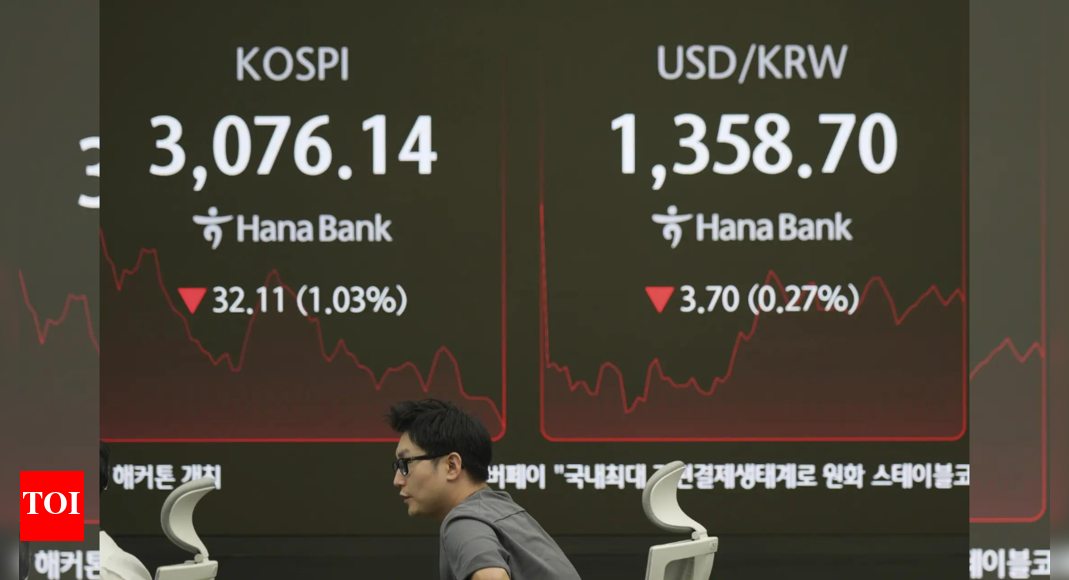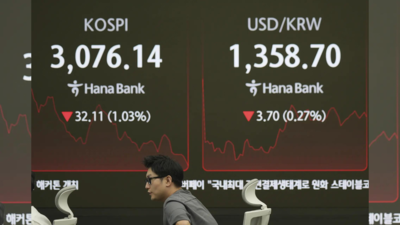Asian equities were largely flat on Thursday while oil prices stabilised, as markets took stock of easing geopolitical tensions and awaited fresh cues on US fiscal and trade policy, especially US President Donald Trump’s looming tariff deadline. According to news agency Reuters, investors remained cautious amid uncertainties surrounding Federal Reserve leadership and potential shifts in US interest rate policy.The MSCI’s broad index of Asia-Pacific shares outside Japan held steady, while Tokyo’s Nikkei climbed 0.9% to touch a four-month high. Hong Kong’s Hang Seng gained 1.2% and the Shanghai Composite rose 1%, supported by optimism following a ceasefire between Israel and Iran that soothed global supply concerns.Meanwhile, oil markets saw mild gains. Brent crude inched up 0.2% to $67.82 per barrel and US West Texas Intermediate (WTI) rose 0.28% to $65.10, rebounding from sharp losses earlier this week. A day earlier, both benchmarks had climbed nearly 1% following data indicating strong US fuel demand and easing geopolitical risks. Brent had settled at $67.68 and WTI at $64.92 on Wednesday.US government data showed crude inventories dropped by 5.8 million barrels last week, while gasoline demand hit its highest since December 2021. “This type of report can refocus on US supply and demand, and less on geopolitics,” said Price Futures Group analyst Phil Flynn, as quoted by Reuters.Market confidence was also supported by a fragile ceasefire between Iran and Israel, announced by US President Trump, that has helped oil prices return to near pre-conflict levels. Still, ING analysts noted that concerns over Middle East supply haven’t fully dissipated, with “stronger demand for immediate supply” continuing to support prices.Adding to market volatility was speculation around Federal Reserve Chair Jerome Powell’s future, as Trump is reportedly considering replacing him by September or October. This weighed on the US dollar and lifted the euro to $1.6805, its highest since November 2021, while the Swiss franc hit a 10-year high. The dollar index slumped to its lowest since March 2022.“The issue with this is it will resurface questions around the Fed’s independence, which… undermines confidence in the Fed and the USD,” said IG analyst Tony Sycamore, as cited by Reuters.Equity markets globally remain sensitive to signals from central banks, especially with Trump’s July 9 deadline for finalising new trade tariffs approaching. While Powell has reiterated that potential tariffs may cause a “one-time jump in prices”, he warned that the risks of more persistent inflation justify caution.Bank of America strategists, quoted by Reuters, added that “unsustainable fiscal dynamics can trigger an accident in bond markets,” highlighting the need for global fiscal vigilance.Overall, analysts expect oil to consolidate between $65-70 per barrel as traders track US macroeconomic data and the Fed’s next rate move. While the global market mood appears to be stabilising, investors remain watchful for how tariffs, inflation, and central bank responses will shape economic trajectories in the months ahead.

